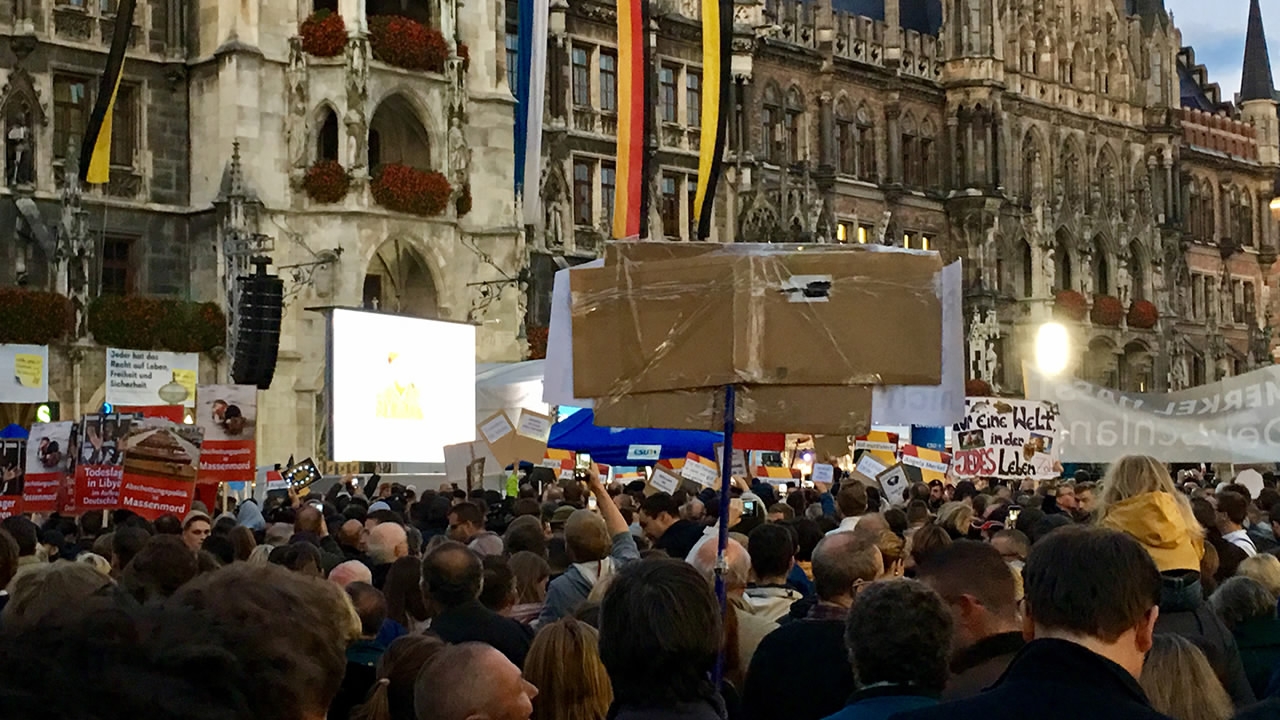More than 8,000 people gathered in Munich for one of German Chancellor Angela Merkel’s final speeches before Sunday’s national election that is expected to sweep her into a fourth term.
With Germany's economy humming, business confidence robust and unemployment at post-reunification lows, analysts say there is simply a little appetite for change at the top.
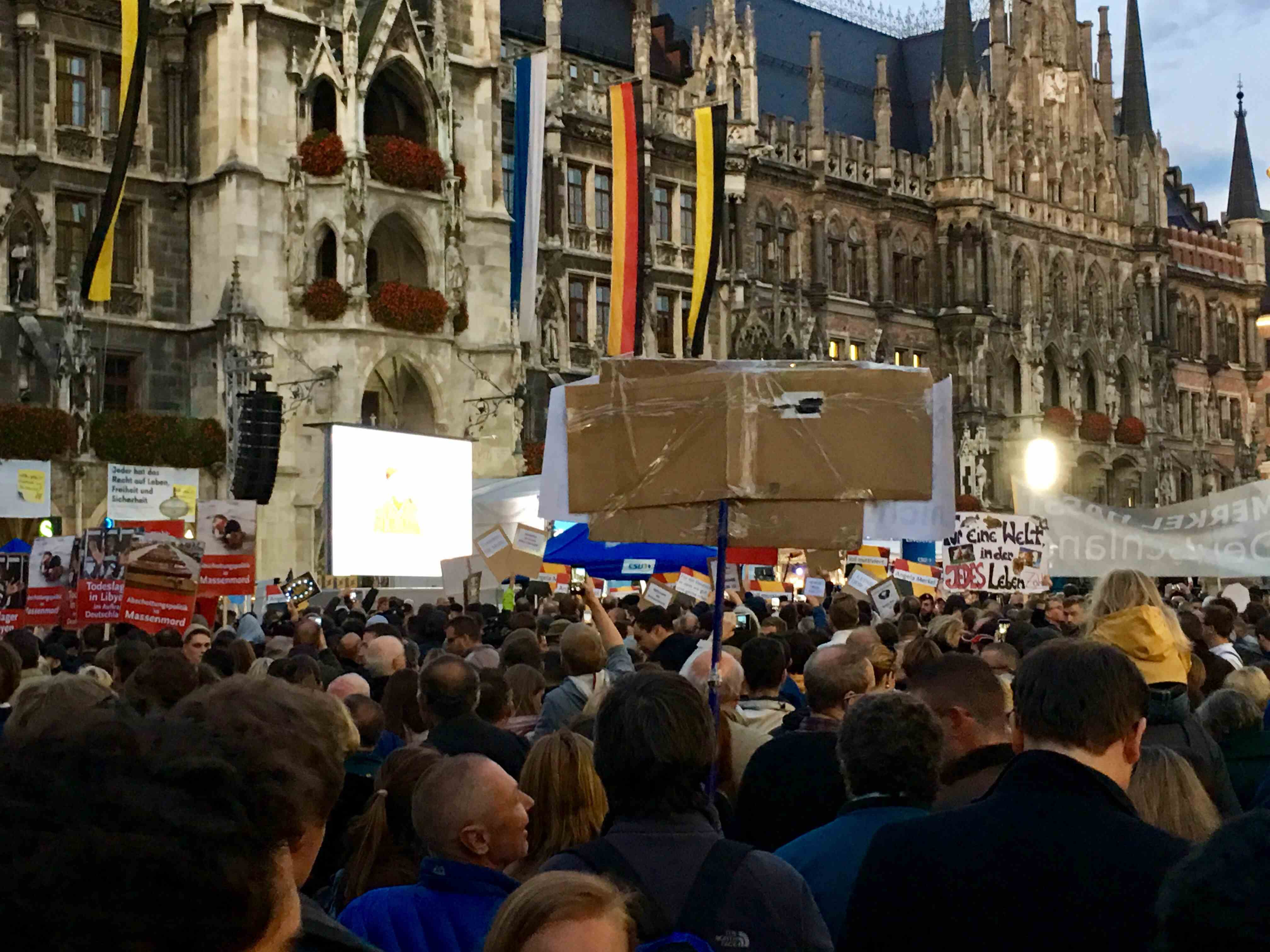
Crowds gather in central Munich's Marianplatz to hear the final campaign speech from German Chancellor Angel Merkel ahead of Sunday's federal elections. /CGTN Photo
Crowds gather in central Munich's Marianplatz to hear the final campaign speech from German Chancellor Angel Merkel ahead of Sunday's federal elections. /CGTN Photo
There has, however, been a lot of disappointment in her refugee policies in Bavaria, which could affect her standing in Sunday's election.
It’s no coincidence Merkel chose Bavaria for her last campaign stop.
She has had a rough relationship with the state’s leading Christian Social Union (CSU) over her liberal stance on the refugee crisis.
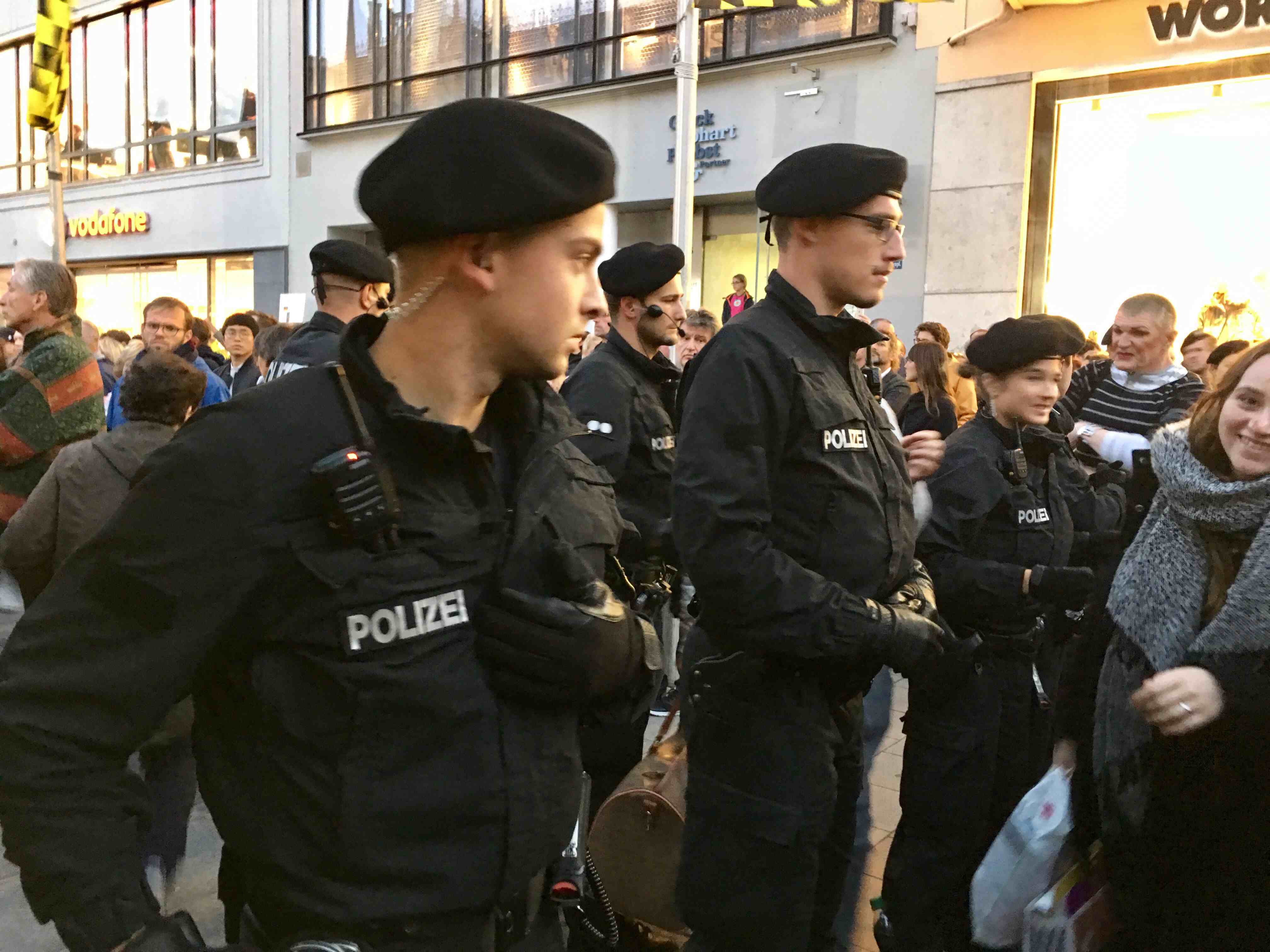
Police keep watch over supporters and opponents of German Chancellor Angel Merkel as she gives her final campaign speech ahead of Sunday's federal elections. /CGTN Photo
Police keep watch over supporters and opponents of German Chancellor Angel Merkel as she gives her final campaign speech ahead of Sunday's federal elections. /CGTN Photo
While both CSU, which have effectively been running the state since World War II and Merkel's Christian Democratic Union Party (CDU) campaign together in national elections, the CSU have been one of her main critic, particularly at the height of the refugee crisis with the Bavarian leader publicly humiliating the chancellor, even threatening to sue the federal government if it doesn't stop the influx of people.
Bavaria was the front line when about 1.3 million refugees crossed, mostly from Austria into Germany.
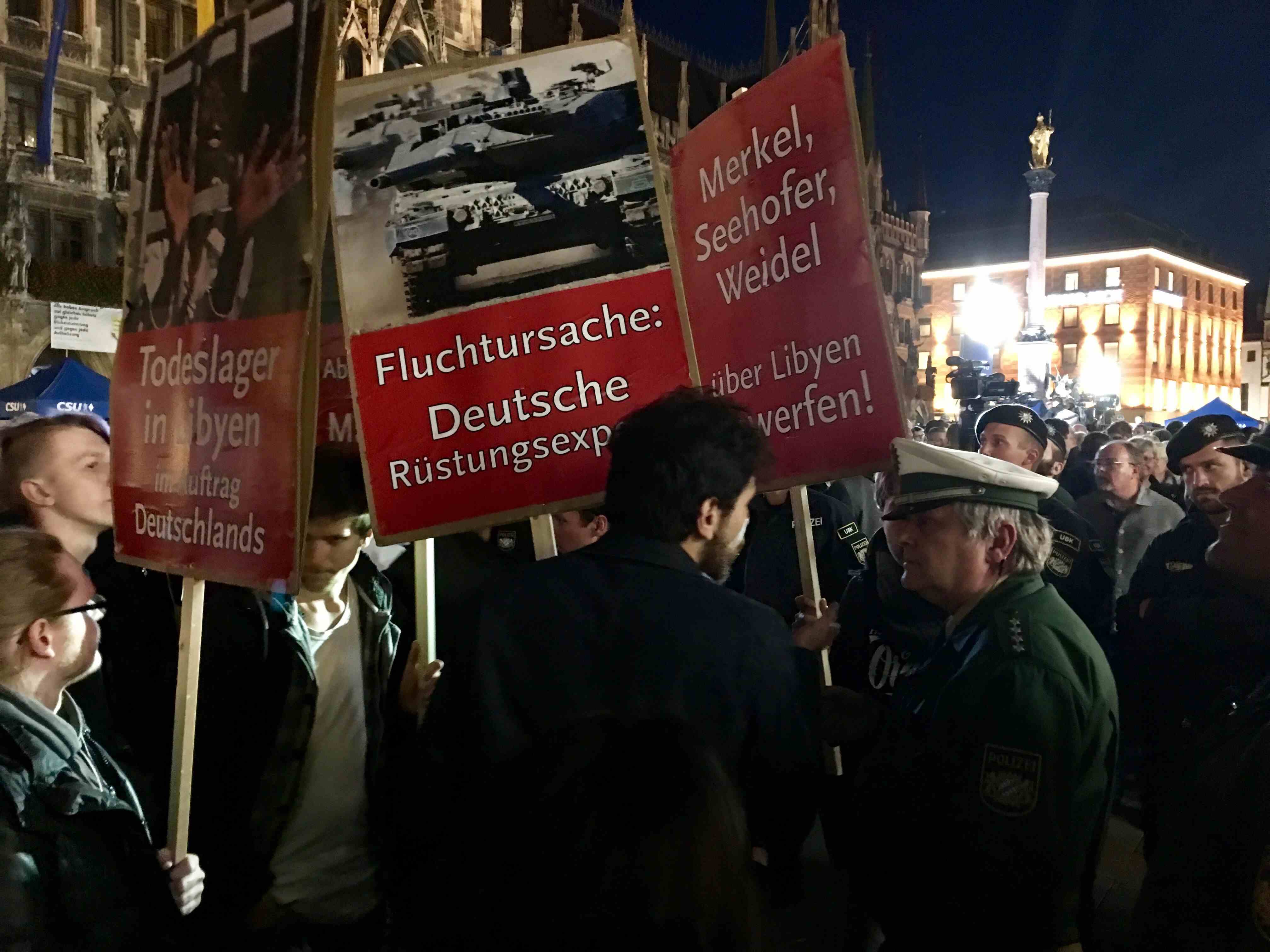
Supporters of German Chancellor Angel Merkel's refugee policy hold signs at her final campaign speech ahead of Sunday's federal elections. /CGTN Photo
Supporters of German Chancellor Angel Merkel's refugee policy hold signs at her final campaign speech ahead of Sunday's federal elections. /CGTN Photo
Many experts say Merkel’s unpopular policies could benefit right-wing populist Alternative for Germany (AfD).
While both the CDU and CSU are polling around 36 percent, higher than any other party – that is close to their worst ever result of 35 percent in 1998.
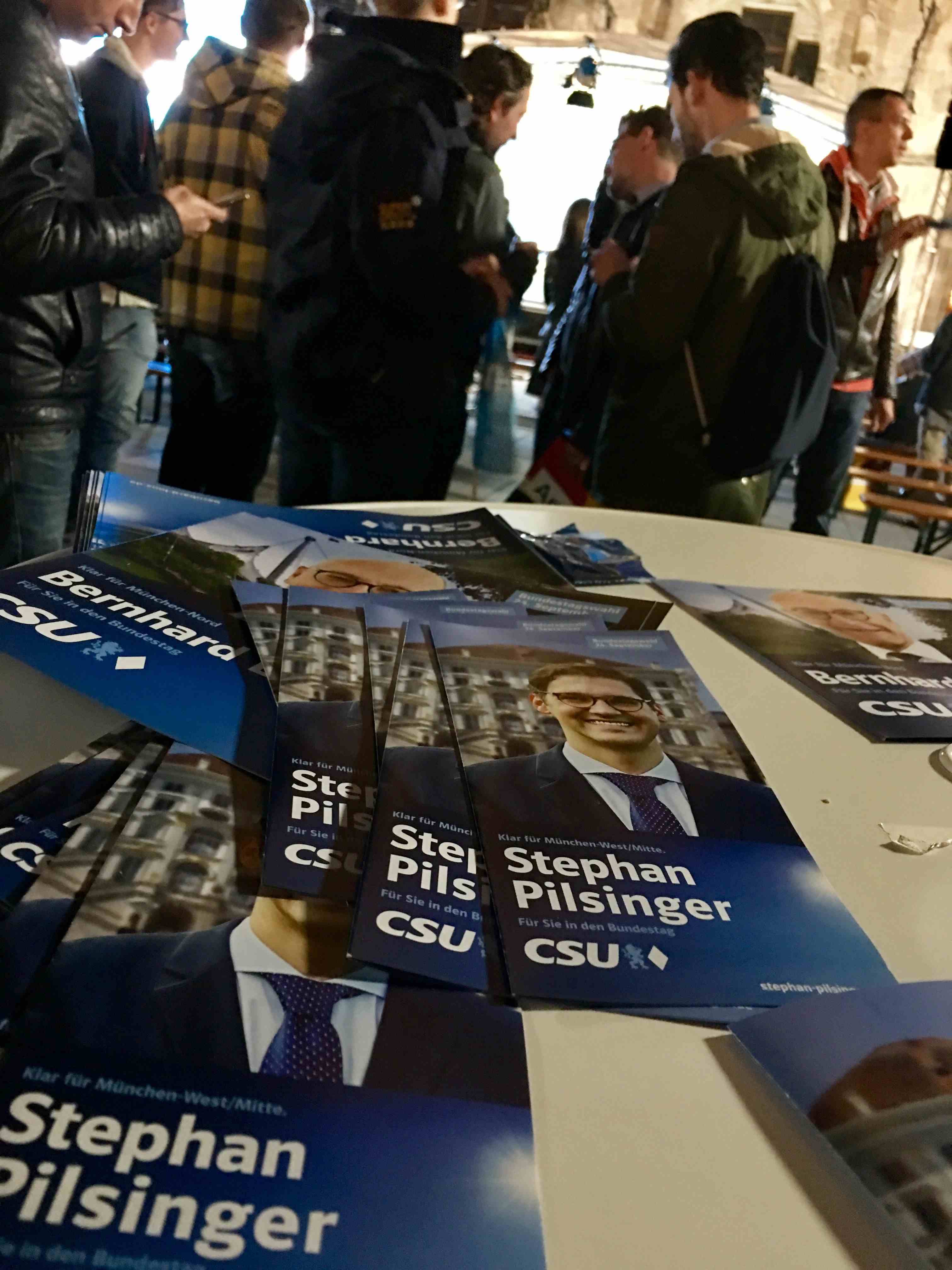
Campaign flyers for Bavaria's ruling Christian Socialist Union Party (CSU), sister party to German Chancellor Angel Merkel's Christian Democratic Union Party (CDU). /CGTN Photo
Campaign flyers for Bavaria's ruling Christian Socialist Union Party (CSU), sister party to German Chancellor Angel Merkel's Christian Democratic Union Party (CDU). /CGTN Photo
On the other hand, this shared threat has helped Merkel and the CSU bury the hatchet, at least for now.
While Bavaria only makes up 15% of the German population, it is economically the most prosperous state, and with the CSU acting as an independent branch of the ruling party, they also play a crucial factor in coalition negotiations.
So Merkel knows she has to continue repairing the wounds amongst traditional CSU voters and the CSU itself to run a stable government.

